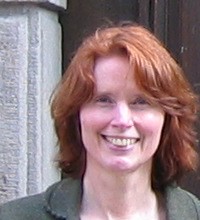We read through the first couple paragraphs of Mary's literacy narrative about growing up dyslexic and becoming a writer, and pulled out the "cultural stories" that she used to "make sense" of her experiences. Using Mary's narrative and your reflections on your own writing, we came up with the following list of "cultural stories" that we (often unconsciously) use to interpret our experience.
Cultural Stories
- good writing = correctness
- "good" writing is defined by external authorities (usually teachers/school) rather than the writer his/herself
- "real" writing does NOT include online writing or texting
- nonstandard writing is "wrong" and has to be corrected
- not being able to read makes you "less than" a person= shameful
- reading "good literature' is "good" for you (make you smarter/a better person)
- you ”have” to be able to do technology
- being smart is bad = cool to hate reading+ (anti story) =geeking out
- online writing is “bad’ is ruining our ability to write
- we can have a tendency to write how we talk
- a love of writing goes hand in hand with a love of reading = to be a good writer you have to read (the right books)
- friendships, peers and role models shape a person’s writing style in ways that school can’t
- good writing is inspired
- writing “proves “ what you know
- grades are the measure of how good your writing is
- knowing more words means you are a better writer
- a “free” place helps you write
- personal writing doesn’t count as real writing
- perfection is expected = mistakes are shameful
- textbooks are not fun to read= but they are real reading = if reading is fun it’s worthless
- learning is “hard” – if it is fun it can’t be real learning
- you need a teacher/school to learn to write
As we noted in class - some of these are "observations" and some are cultural stories. It is probably worth while to take a hard look at what we see as "real " (observations) and what we see as myth - since often our "assumptions" FEEL like they are real This is a great list and should be very helpful in writing your narratives.
Developing a rubric and range-finding (making sure we apply the rubric the same way)
Rubric:
Focus (40)=> in addition to specific points in the assignment, an "A" essay needs to make a coherent point
Development (30)
- specific, detailed stories
- reflections on stories
- detailed connections between the focus and the stories
Organization (20)
Correctness/style (10)
We didn't really have quite enough time to compare our scores - but it looked like you were on the right track. Great!
For next week:
As you might have noticed - we did not have time to create the portfolio like it said on the calendar that we were going to - we will do that next week in class. So keep copies of your journaling (or make a MS word copy) so that you can post it next week in class.
Writing homework: make some notes on your writing process - for the literacy narrative assignment or any other assignment. It is OK to write from memory - but it will be better if you write specific observations of what you do as you write - while (or shortly after) you write.
See you next week.

No comments:
Post a Comment